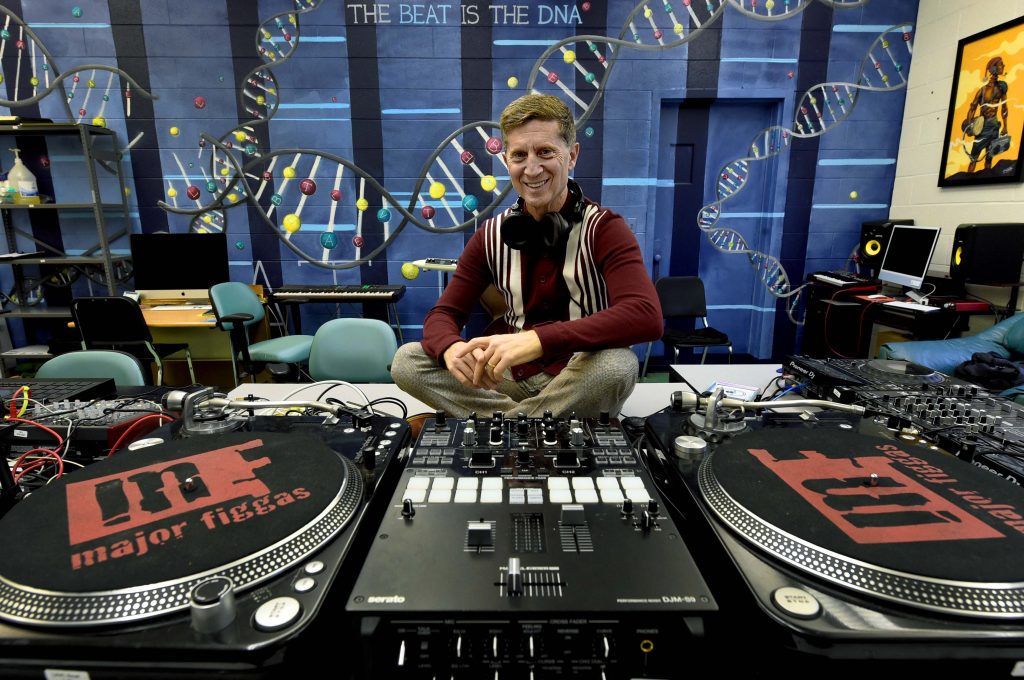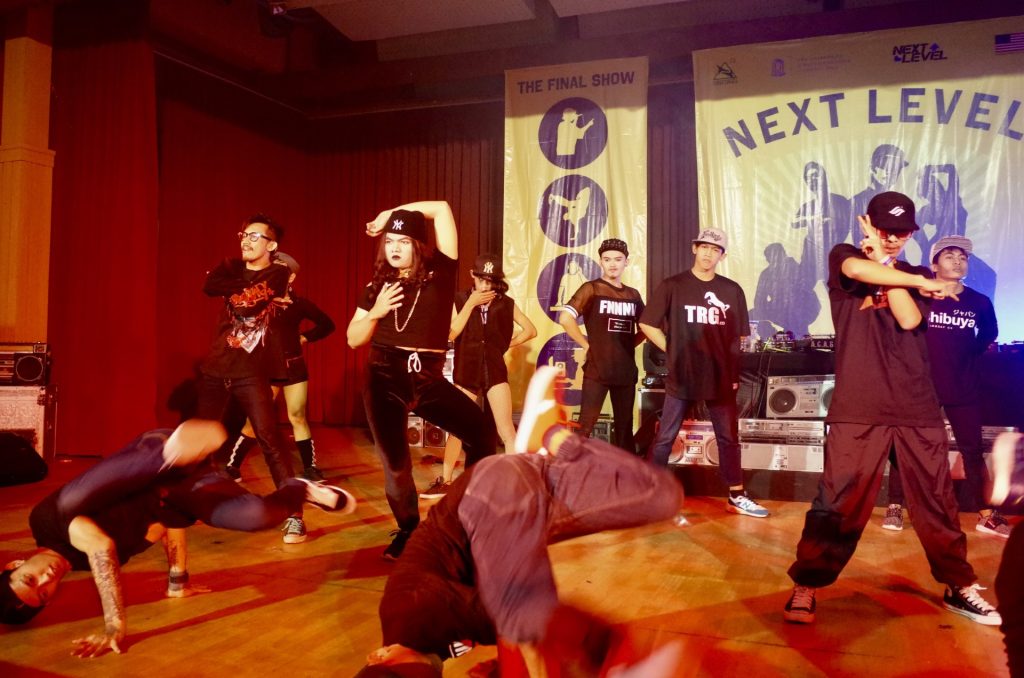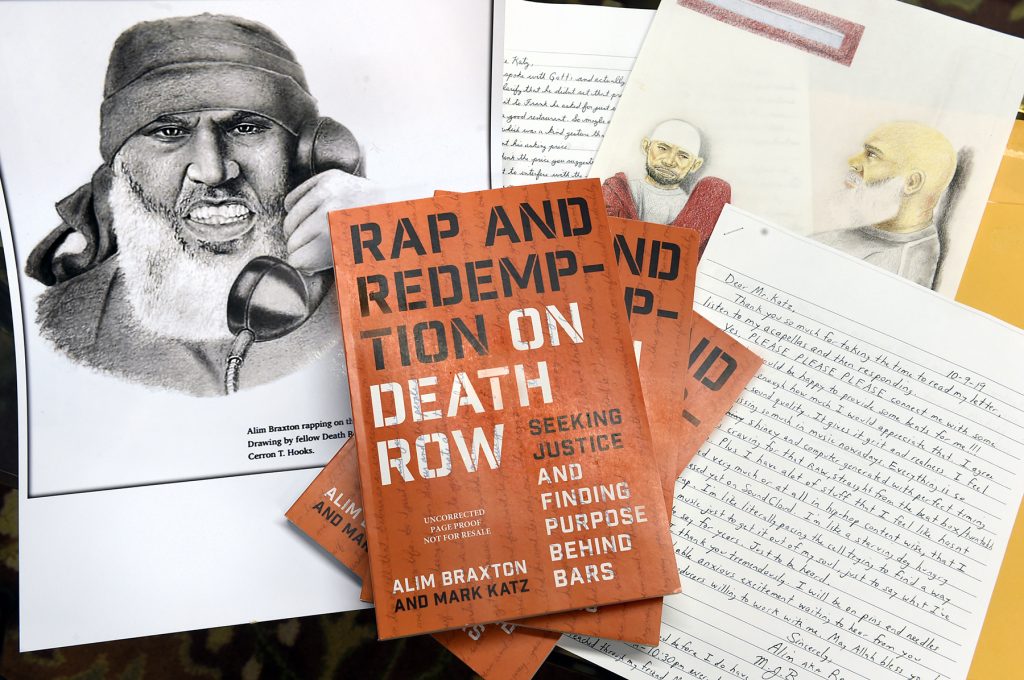Two spring performances, both involving work by music professor Mark Katz, highlight the transformative power of hip-hop.

When asked about the way hip-hop can create bonds between people across geo-political divides, Mark Katz said that he once asked a Serbian break dancer if there were challenges in performing with dancers from other Balkan countries.
“He looked at me and said, ‘You can’t fight when you’re dancing together,’” Katz said. “‘If you have a shared goal, you set aside your differences because collaboration is more important than your ego.’”
Katz, the John P. Barker Distinguished Professor of Music, has seen many of those examples as the founding director of Next Level, an international hip-hop cultural diplomacy initiative of the U.S. State Department’s Bureau of Educational and Cultural Affairs, UNC-Chapel Hill and the Meridian International Center.
Katz stressed that even though he launched the program, its success is due to a robust creative community of hip-hop artists from the around the world, artists who have helped to fulfill Next Level’s goal of building a global community through hip-hop culture.
The program, which has now been to more than 50 countries, engaged with over 100 hip-hop artist educators and reached thousands of people, celebrates 10 years in 2024.
“It has been a way for people with a common love of hip-hop to connect across vast differences of language, religion, culture, race, gender and more,” Katz said. “What I value the most is that people often say, unsolicited, that this was a life-changing experience. It has also changed my life in many ways.”
Katz, a classically trained violinist, has been studying and writing about hip-hop music for almost 25 years. He wrote about Next Level’s impact in a 2019 book Build: The Power of Hip Hop Diplomacy in a Divided World.
To mark the program’s major milestone, Carolina Performing Arts is convening global hip-hop artists for a series of master classes, workshops, jam sessions, talks and performances.

The celebration culminates with a concert on Feb. 2 at 8 p.m. at CURRENT ArtSpace + Studio. On Feb. 1, Katz will host a panel discussion at 11 a.m. in Hill Hall about hip-hop diplomacy (registration required), joined by global artists; Barbara Stephenson, UNC vice provost for global affairs; and Jill Staggs from the State Department. Also on Feb. 1, there will be a pop-up performance at 2 p.m. in the FedEx Global Education Center lobby and a 7 p.m. break-dancing workshop led by the Raleigh Rockers B-Boy crew at CURRENT ArtSpace.
Alison Friedman, the James and Susan Moeser Executive and Artistic Director of CPA, said the Next Level performances and events are a core focus of a season designed around building bridges and fostering a culture of belonging.
“We opened last fall with the Philadelphia Orchestra, commemorating the 50th anniversary of the group’s historic trip to China in 1973. They were the first American orchestra to tour China, six years before the establishment of diplomatic relations,” Friedman said.
“In building our season, we are book-ending the orchestra’s 50th anniversary performances with 10 years of Next Level, which has been a flagship program in building bridges through the arts. These performances are jumping-off points for broader conversations.”
Rap and redemption
“Mailed from Central Prison.” Those were the words printed in large capital letters across the top of an envelope waiting for Katz in his music department mailbox over four years ago.
He opened the letter immediately, standing right there in the mailroom.
“It began, ‘I am a reformed prisoner, writer and rapper on North Carolina’s death row,’” Katz said. “The writer was looking for a producer to help him record an album from death row, something that had never been done before.”
The author of the letter, Alim Braxton, has been imprisoned for 30 years, with 26 years on death row. Braxton was sentenced to death for killing another inmate at the Caledonia Correctional Center, where he was serving a life sentence for two murders he committed during a robbery spree in Raleigh. He has been rapping since the age of 13 and converted to Islam while incarcerated.
Katz sent a postcard offering to put Braxton in touch with Nick Neutronz, a producer Katz had met through Next Level. It was the start of a years-long back-and-forth between the two that continues to this day.
“Alim is not pleading his innocence, and I’m not pretending to ignore his crimes,” Katz said. “The reason I have developed such a strong connection with him is he has spent decades trying to make something positive come out of his life. I take music very seriously, and I believe that everyone should have access to the arts and to music as a form of self-expression.”

Katz began scanning and transcribing the letters almost as soon as he received them. The correspondence between he and Braxton — now more than 175 letters and hundreds of pages — is the source of a new UNC Press book, Rap and Redemption on Death Row: Seeking Justice and Finding Purpose Behind Bars, which will be published in April. The letters, which provide a window into their correspondence from August 2019 to April 2022, will become part of the Alim Braxton Collection in the Southern Historical Collection in Wilson Special Collections Library. (The collection will be available in 2025).
“Hip hop is my life. So many memories in my life are marked and shaped by hip hop,” Braxton writes. “Being in prison you are stripped of all your worldly possessions. Very little belongs to you. But my rhymes are mine. When the mood strikes, I want to write. It’s the greatest escape.”
The new book is also the subject of a March 1-2 UNC Process Series performance, “Rap and Redemption on Death Row.”
Joseph Megel, artistic director of the Process Series and teaching professor in the department of communication, is working with 2023 Carolina graduate and Morehead-Cain Scholar Jalen McKoy in consultation with Braxton to translate the book to the stage. The Process Series’ current season theme is “Voices — Visions and Revisions.”
“It’s a deeply observed story of transformation and a voice we don’t often get to hear,” Megel said. “Alim is looking for redemption and not forgiveness. He understands that he deserves to be punished. It’s a story of being able to reclaim humanity in the direst of circumstances. His redemption is itself a revision.”
Broadway, TV and film actor Keith Randolph Smith, who Megel has worked with for years, will portray Braxton in the one-man performance at 7:30 p.m. in the Swain Hall Black Box Theatre. Braxton will also soon fulfill his dream of releasing an album from prison, “Mercy on My Soul.” Megel said that music from the new album will be woven into the performance, and the album may be available at the performance based upon the timing of its release.
Katz has now taught the course “Music and Incarceration in the United States” twice — as both an undergraduate class and a graduate seminar — and hopes to teach it again next academic year. He calls it “one of the most powerful classroom experiences I’ve ever had.”
“I don’t preach prison abolition or tell students how to think about prison or prisoners, but we have discussed how people say that music has saved their lives,” Katz said. “Alim was in solitary confinement for seven-and-a-half years in one stretch. He had lost the will to live. He said that music, creating music, helped him to survive. It illustrates for students the power of music.”
By Kim Spurr, College of Arts and Sciences
